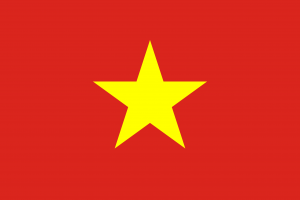Language/Vietnamese/Grammar/Tenses
Chào! Vietnamese Learners! 😃
➡ In today's lesson you will learn how to use verbs in Vietnamese.
Happy learning!
In Vietnamese the verbs do not agree. The conjugation is therefore extremely simple since it does not exist. However, there are a few rules that should be followed when expressing yourself in the past or future. Nothing mean.
Expressing yourself in the past tense
We simply add the particle “đã” between the pronoun and the verb.
- Hôm qua, tôi đã đi đến Hải Phòng: yesterday, I went to Haiphong
If in the sentence we already indicate that the action took place in the past tense, as in the example above with “yesterday”, the particle đã is not necessary for understanding: Hôm qua, tôi đi đến Hải Phòng is sufficient.
Likewise, if you use the word "trước" as in năm trước: last year, tuần trước: last week, đã is not necessary. For example, you can say: Năm trước, tôi tham quan Phnom Penh ở Campuchia: last year, I visited Phnom Penh in Cambodia.
Express yourself in the future
The rule is analogous to the previous one, we add the particle “sẽ” between the pronoun and the verb. Likewise, if you already indicate that the action will take place in the future, for example with ngày mai: tomorrow is not necessary.
For example, with the word "tới", as in năm tới: next year, you can say: Năm tới, tôi đi đến Việt Nam: next year I am going to Vietnam. We will understand you perfectly, even without the particle sẽ, since tới already indicates the future.

